PRODUCT DESCRIPTION
Over time, all materials, including natural stones and manufactured materials like concrete, are prone to surface damage caused by environmental and atmospheric factors. To ensure their longevity, proper protection should be applied, considering the specific type of corrosion and the factors contributing to it. The key factors leading to corrosion include physical or mechanical stress, temperature variations, chemical exposure, electrochemical reactions, microbiological influences, and electrical factors. Fortunately, advancements in the industry have led to the development of specialized protective coatings tailored to address these factors.
The variety and breadth of available solutions are vast, emphasizing the need to assess the unique conditions of each project. It is important to note that a single universal solution for all projects would indicate a lack of expertise on the part of the provider. At Afzir Retrofitting Company, our experts understand this complexity and are dedicated to offering tailored solutions for implementing protective coatings. We thoroughly examine the specifications of each project, as well as the requirements and requests of our clients, to ensure the most suitable protective measures are implemented.
One such solution is the application of potassium silicate anti-acid mortar, which involves using an impermeable membrane layer explicitly selected for the conditions of your project. This protective layer helps stabilize the mortar on metal or concrete surfaces, preventing the penetration of acids and bases into the underlying substrate. Afzir Company can provide various rubber lining systems or PVC vinyl ester resins as suitable membrane options for your project.
Potassium Silicate Anti-Acid Mortar is a high-performance, specialized mortar providing exceptional acid resistance and surface protection. This unique formulation utilizes potassium silicate as a key component, offering superior durability and chemical resistance against highly corrosive substances such as hydrochloric acid (HCl), sulfuric acid (H2SO4), and nitric acid (HNO3).
This mortar is engineered explicitly for installing and bonding acid-resistant tiles and bricks. It is an ideal choice for applications in industries where exposure to high acid concentrations and corrosive environments is prevalent. It excels in environments with elevated operating temperatures, ensuring long-lasting performance under extreme conditions.
The protective coating of potassium silicate anti-acid mortar forms a robust barrier against acid attacks, effectively preventing acid penetration and minimizing surface damage. Its exceptional resistance to corrosion helps maintain the integrity and longevity of the underlying surfaces, including metal and concrete.
Please note that while potassium silicate anti-acid mortar offers exceptional acid resistance, it is unsuitable for surfaces exposed to washing with rainwater or in the vicinity of water or alkalis. In such cases, alternative protective coating options should be considered. Our team of experts at [Your Company Name] can provide guidance and recommendations for alternative solutions based on your specific project requirements.
Choose potassium silicate anti-acid mortar for reliable and durable acid protection, ensuring the longevity and integrity of your surfaces in high-corrosion environments.
Features
- The resistance of potassium silicate anti-acid mortar against pure and sea water as well as ionized water is also high.
- Having high mechanical strength and adhesion
- Excellent chemical resistance against a wide range of alkalis and strong mineral and organic acids, salts, solvents, oils and other corrosive chemicals.
- Very low absorption
- Good adhesion to the work surface
- Excellent heat resistance
- Very high mechanical resistance
- Possibility of coating and chemical protection of surfaces without installing tiles
Applications
- The protective coating of all types of concrete and metal surfaces exposed to severe corrosion and installation of anti-acid tiles is used.
- Protective coating of surfaces that are in the vicinity of destructive chemicals.
- Protective coating for applying potassium silicate anti-acid mortar in battery rooms
- Protective coating of potassium silicate anti-acid mortar in food and dairy factories
- Electrolysis tanks
- Using anti-acid mortar for bonding acid-resistant tiles
Packaging
- In 20 Kg pockets
Colour
- Black paste (after mixing)
technical specifications
|
mixing |
A: B: = 3: 1 |
|
Specific weight |
1.9 Kg/cm3 |
| Thermal stability |
900°C |
Adhesion strength is greater than one MPa
- Familiarize Yourself with the Material: Understand potassium silicate anti-acid mortar’s properties and application guidelines.
- Assess Project Requirements: Evaluate the specific environmental conditions and chemical exposure levels.
- Surface Preparation: Ensure clean, dry, and contaminant-free surfaces before applying the mortar.
- Follow Manufacturer’s Instructions: Adhere to recommended mixing ratios, application techniques, and curing processes.
- Proper PPE and Ventilation: Use appropriate personal protective equipment and ensure adequate ventilation.
- Thorough Application: Apply the mortar evenly and consistently, covering all designated surfaces.
- Curing and Drying Time: Allow sufficient time for the mortar to cure and dry as per guidelines.
- Ongoing Maintenance: Regularly inspect and repair coated surfaces as needed.
- Collaborate with Experts: Seek advice from industry specialists and manufacturers for guidance throughout the project.
- Understand the Material: Familiarize yourself with the properties and guidelines for potassium silicate anti-acid mortar.
- Pre-Project Assessment: Evaluate project requirements, including environmental conditions and chemical exposure.
- Surface Preparation: Clean and prepare the substrate thoroughly before applying the mortar.
- Follow Manufacturer’s Guidelines: Adhere to recommended ratios, application techniques, and curing procedures.
- Train and Equip Your Team: Provide training and proper protective equipment to your team members.
- Quality Control and Inspection: Implement a robust process to ensure compliance with specifications.
- Curing and Drying Time: Allow the mortar to cure and dry properly.
- Collaboration with Suppliers: Maintain communication with suppliers for technical support.
- Post-Installation Support: Provide documentation and guidelines and address any concerns or issues after installation.
Surface preparation:
Ensure smooth, clean, and dry surfaces free from dust, compounds, and contaminants. Fill large holes and level uneven areas using suitable mortar or putty. Mechanical methods like sandblasting or shot blasting can be used for open-pore surfaces.
Performance:
Apply PSMTM190 anti-acid mortar with a trowel up to a maximum thickness of 5 mm per layer. For thicker applications, layering is necessary. Mix ingredients within 30 minutes and strictly adhere to ratios. Afzir company can guide necessary adjustments.
Mixing Instructions:
Shake each part, and mix Part B into Part A using a slow-speed mixer for two minutes until uniform. For smaller volumes, use a ratio of 1 part B to 3 parts A. Avoid air entrapment during mixing. The recommended application rate is 4 kg per square meter.
Limitations:
Minimum execution thickness is 2 to 4 mm. Avoid application at temperatures below +5 degrees Celsius. Do not dilute the mortar with solvent, as it reduces its resistance. The substrate concrete should be aged 21 to 28 days, depending on processing and drying conditions.
- Document Specifications: Maintain detailed records of mortar specifications and project requirements.
- Material Inspection: Thoroughly inspect incoming materials for quality and adherence to standards.
- Batch Mixing: Follow proper mixing procedures to achieve a consistent, uniform mortar mixture.
- Consistency and Workability: Assess the mortar’s consistency and workability during application.
- Adhesion Testing: Conduct tests to verify strong bonding between the mortar and substrate.
- Thickness Measurement: Monitor and measure the mortar layer’s thickness at various locations.
- Curing and Drying Assessment: Ensure proper curing and drying times are followed.
- Surface Finish Evaluation: Inspect the finished surface for uniformity and absence of defects.
- Documentation and Reporting: Maintain records of quality control activities and deviations.
- Post-Application Inspection: Conduct periodic inspections to assess long-term performance.
- Personal Safety Equipment: Use gloves, goggles, and work clothes to protect against potential skin damage when working with the product.
- Contact Precautions: In case of contact with the skin, eyes, or mucous membranes, promptly wash the affected area with warm water and seek medical attention if necessary.
technical documents
Photo Gallery
Technical documentation request


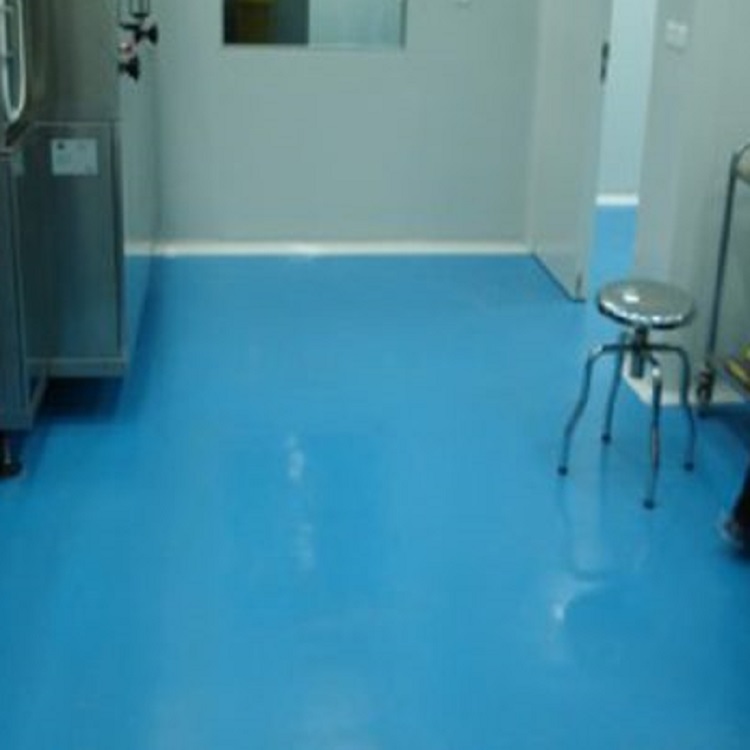
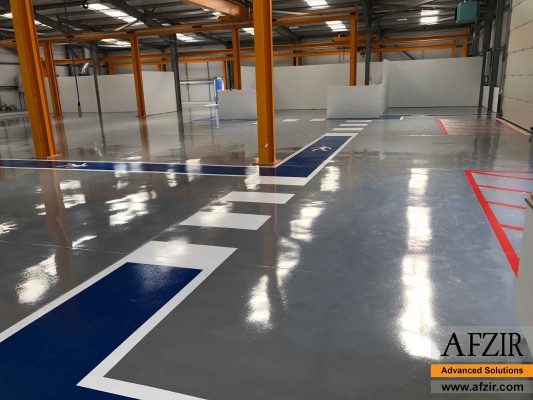
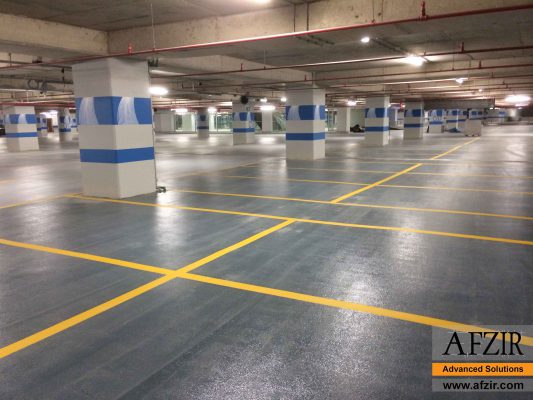






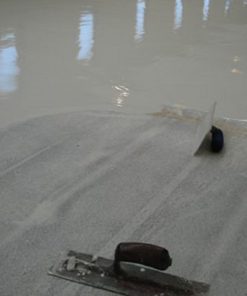
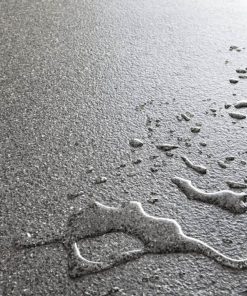
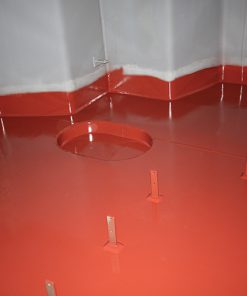
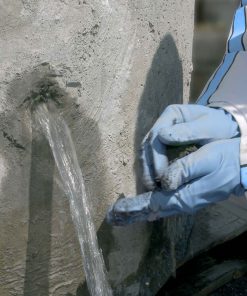
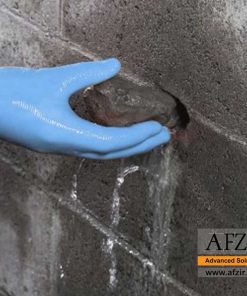
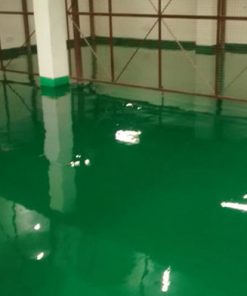
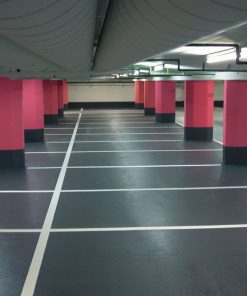

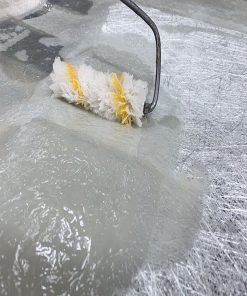
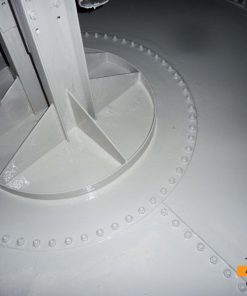
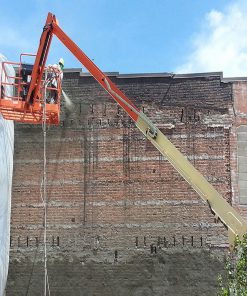
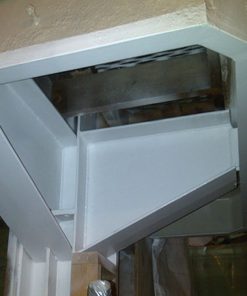
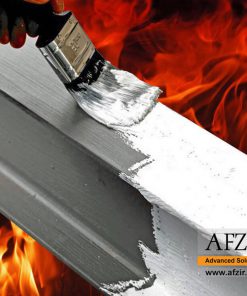
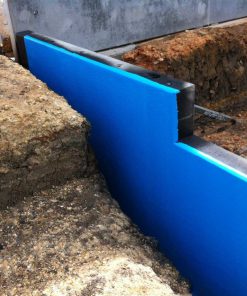
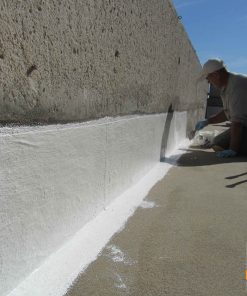
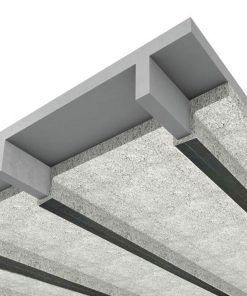
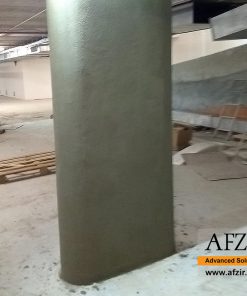
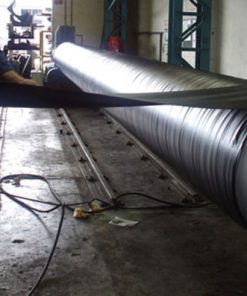

Be the first to review “Potassium Silicate Anti Acid Mortar”